From Guest Editor Karen Schubert
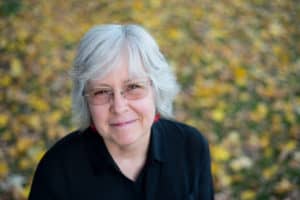
I co-founded Lit Youngstown in 2015, pretty focused on the local community. We started a monthly reading series and sent out an invitation to Youngstown-area poets and writers. They found us, as Youngstown has a rich literary community, including writing groups like the Fallen City Writers who have been meeting for decades; the editor and authors of Pig Iron Press; former student editors of the Youngstown State Penguin Review which had a 50-year run; Youngstown State and Northeast Ohio Master of Fine Arts faculty, students and graduates. We hosted writing classes in cafes and libraries; had a storytelling-and-desserts fundraiser for the YWCA children’s library; wrote poems with the clients at Purple Cat, a nonprofit for adults with disabilities. We interviewed twelve gracious, intrepid Black women between the ages of 64 and 101 and collected their stories in the book Phenomenal Women: Twelve Youngstown Stories.
In the community, I was continuously surprised by how many people told me they were working on a novel or read poetry for pleasure or wanted to write family history. We had picked out the name Lit Youngstown because we didn’t want to scare anyone with a high fallutin’ sounding name like Literary Youngstown. But it already was a literary place—I just didn’t know how much.
Pretty soon we began looking outward, inviting readers who would travel in from a small distance, offering a modest travel stipend. I realized it would benefit me to talk to other nonprofit administrators, and gratefully I met with directors at the Wick Poetry Center, Just Buffalo Literary Center and the Downtown Syracuse Writers Center. We presented at conferences with other administrators, and then we held our first Fall Literary Festival. Planning for the sixth annual Festival, October 20-22, is underway, and each year we have strengthened our connection to the wider region.
What an incredibly rich region this is! The big cities. Pittsburgh Writers House, City of Asylum and Alphabet City, the August Wilson House, Madwomen in the Attic, in addition to programs and colleges and universities and their satellites and so many writers. We have hosted Jan Beatty, Kevin Haworth and Lori Jakiela. Ditto Cleveland and the Cleveland State Poetry Center, the William N. Skirball Writers’ Center, Anisfield-Wolf Book Awards, Literary Cleveland and writers including Philip Metres, Quartez Harris, Mike Geither and Sarah Minor who have brought their work to Youngstown. The small cities. Erie, Kent, Wheeling. The rural places, lakeshores and river towns.
I attended the first Writers Conference of Northern Appalachia in Wheeling and learned so much about the geographical identity of the region. Youngstown is, of course, also thick in the post-industrial conversation of memory and imagined future, and there is so much to write about.
I have moved around a lot and the strongest geographical identity I can muster is vaguely Midwestern—I like it when a stranger says hello, I sometimes go to the store looking scruffy, and I don’t like to waste anything. I had a residency at Headlands Center for the Arts in San Francisco one summer with mostly East and West Coast artists. I and another Midwesterner were joking that we would never send back a terribly cooked steak unless we could be sure it wouldn’t end up in the trash. But on a deeper level, I think what I really love about this region is the diversity and sense of community, and the creative, practical scrappiness embedded in the culture. And I think these manifest in the writing.
I honor The Watershed Journal for giving voice to regional writers, and I think you will enjoy this collection of poems and stories. Many are pastoral, with a profound love, from within, of the wild lands: Brady Buchanan’s “granular murmur/of the slush-filled river,” Susan Elliot’s poem remembering a dog and “sassafras at field’s edge,/Crabapples in the thicket,/Mint in the swamp,/Witch hazel at water’s edge,/ Squirrels in the walnut woods.” There is tender nostalgia: Eric Armstrong gives us a kid’s-eye-view of a train trip to Pittsburgh at Christmas to visit his grandparents. “The engine was a huge monster, smoking, screeching, and hissing steam from the cylinders as it came to a stop just beyond us. The mixture of hot oil and steam is an unforgettable smell. The maroon coaches of the Pennsylvania Railroad passed slowly and finally stopped, lightly clunking together. The conductor, impeccably dressed in his black suit and blinding white shirt, stepped off the coach platform with a stool to help passengers board.”
Pour yourself some coffee and sit for a spell to enjoy this issue. Congratulations to the contributors and to the editors; as a former editor, myself, I know this is long and meaningful work.

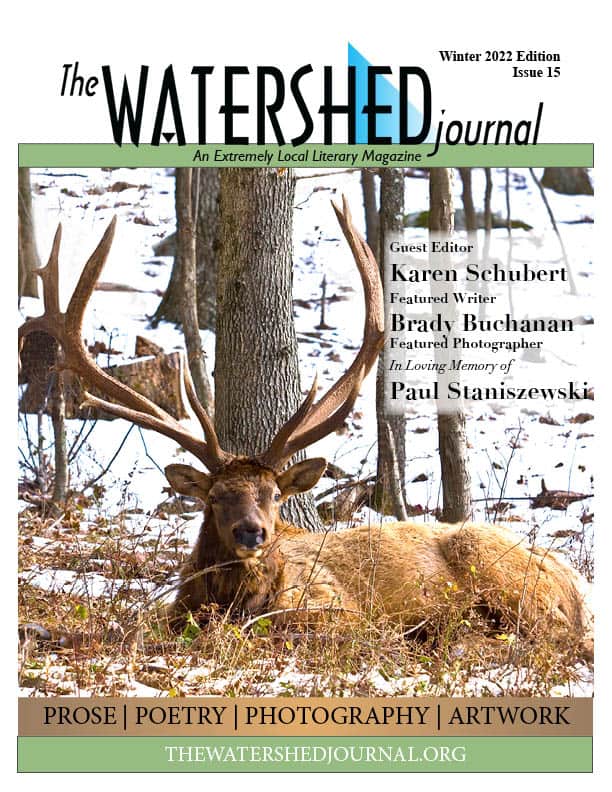
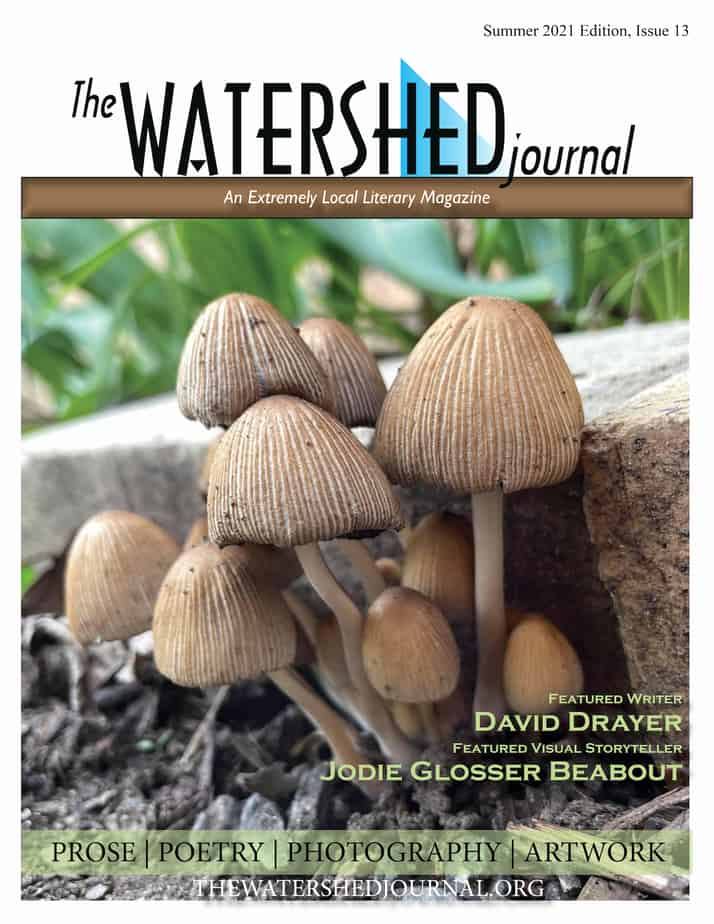
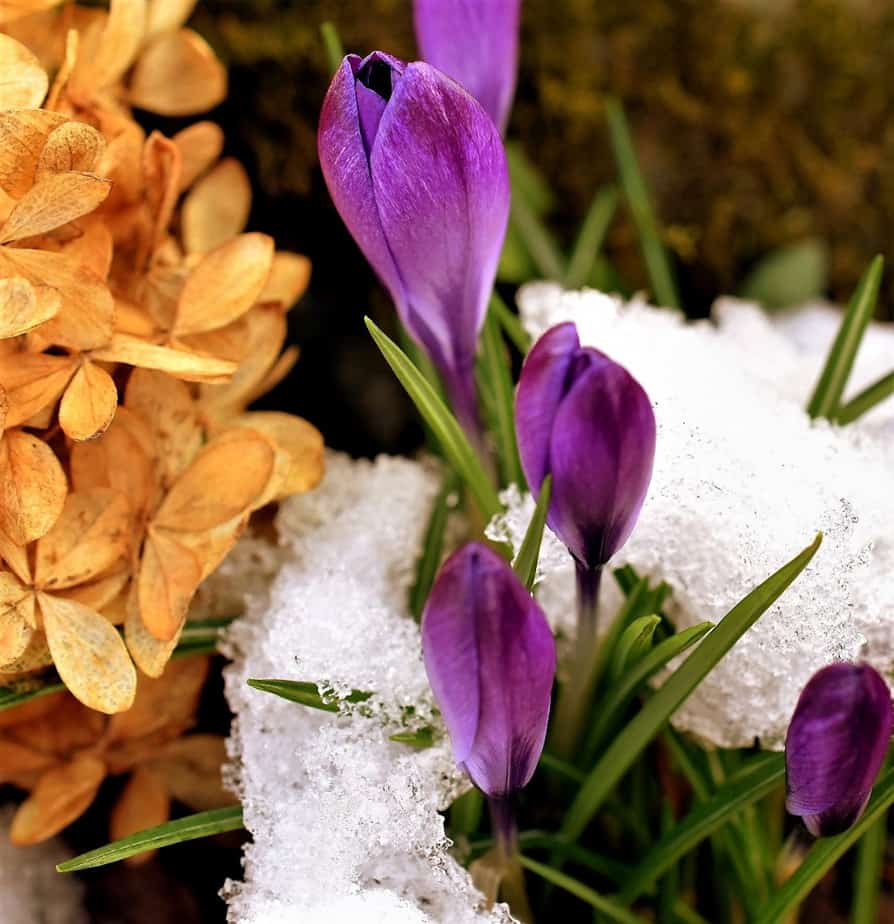
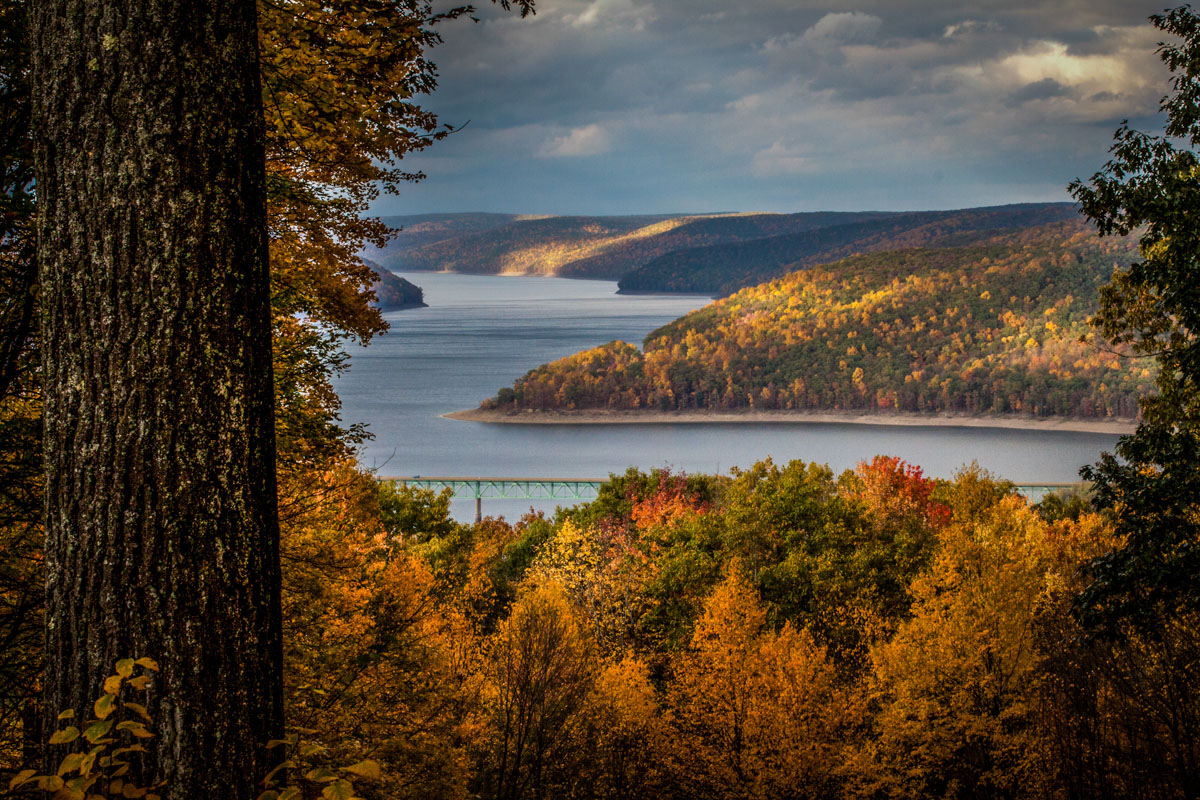
Hi Karen,
Welcome aboard at The Watershed Journal. It sounds like you’re a perfect fit for an already outstanding magazine and store.
I am a native of Brockway and thoroughly enjoy reading stories by and about our Jefferson/Clarion County residents.
Might I suggest making The Watershed Journal available for sale through the mail as I now live out of the area, but would be delighted to be able to be more in touch with your efforts.
May you find all the best of our area, and lead the Journal to new heights of expression.
Sincerely,
Lowell Anderson
Lowell, thank you for your loyal readership! We do offer an option to have the Journal delivered to your door every quarter through our TWJ Membership program. You also get lots of other great perks to keep you in the loop with the local literary scene. Check out our Membership page for more information!